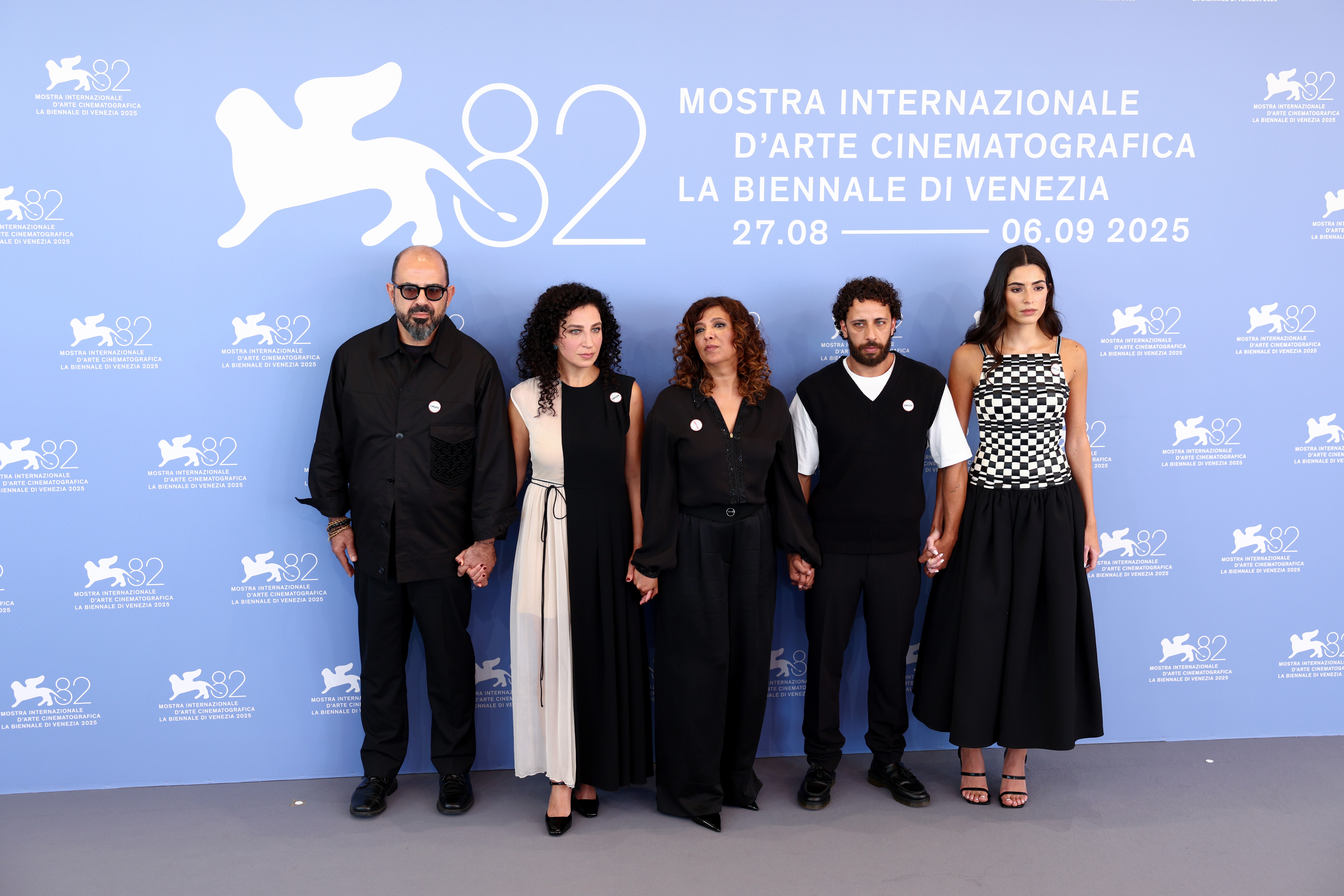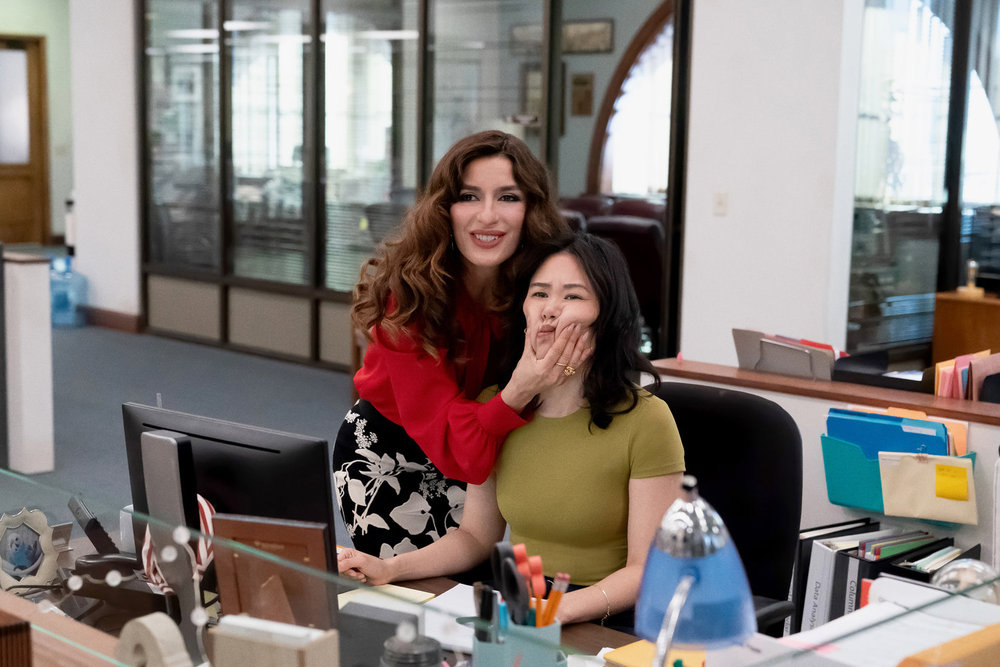Painting an attractively-composed picture of Italian theater legend Eleanora Duse (1858-1924), festival favorite Pietro Marcello has for his latest feature swapped an underdog striving to achieve — as seen in 2019’s “Martin Eden” — for an achiever striving to maintain. In a post-war landscape where everything is uncertain, the decades-strong and since-retired actress Eleanora Duse (Valeria Bruni Tedeschi) announces her return to the stage, signaling the start of a singular rise and a simultaneous fall; an ever-tightening grip on her passions whilst her relationships with those she loves and is loved by disintegrate around her.
It should be noted that Eleanora Duse is a historical figure of whom there is very little documentation. Hardly anything was recorded of her acting or voice, which is why Marcello — who has equally worked in documentary forms over the years — has opted for a fictitious exploration of her life. It is a shame then that the figure that he conjures is so one-dimensional. Bruni Tedeschi, who has a striking resemblance to historian Mary Beard in this role, plays Duse with a perpetually raised voice and wild-eyed fervor for theater that is, at first, uncomfortably parodic.
Her commanding presence is undeniably powerful, but we’re granted little in which to root her intensity. Marcello himself admits in the film’s press notes that filming the theater scares him, and unfortunately it shows. “Duse” suffers for the scarcity of the pursuit that it and its inhabitants purportedly care so passionately about. When the stage is finally set for a rehearsal, doubts about Marcello’s approach escalate. “I did not learn how to shout without losing my voice just to be told to lower it” yells Gabriele D’Annunzio (Fausto Russo Alesi), creative and romantic partner of Eleanora Duse, as he intimidates and educates a new member of the company. For the first act of Marcello’s film, you would believe the director had imbibed this idea as a mantra for himself. It is hard to understand someone or grow sympathy for them when they won’t stop yelling at you, and when all the world’s a maximalist stage for the ensemble of “Duse,” an emotional response is hard to elicit.
Stepping into this equation like a salve is Noémie Merlant, the film’s standout performance and true emotional core, playing Eleanora’s soft-spoken daughter, Enrichetta. Frequently pictured getting in and out of boats, the clear blue sea lapping behind her, she never stays long. She is cast away by her mother, who wishes nothing to interfere with her theater. In an almost-stirring early scene, she is denied entry to Duse’s new play, forced to walk away tearfully with her kids in tow. It’s a shame that the film’s screenplay, penned by Marcello and co-writers Letizia Russo and Guido Silei, sidelines her just as Eleonora does.
There’s a real sense that “Duse” has been structured the wrong way around. We are introduced to the supposedly legendary figure of Elenora Duse and her desire to return to the stage before we’ve seen even a glimpse of her performing on one. The rise of fascism encroaches on her like a disease, culminating in a personal invitation from Mussolini himself, but we’re dealt countless scenes of Eleonora’s psychosis before we’re granted a contextual explanation of what feeds it. The gradual cementing of this satisfying micro-macro parallel does little to counter the one-note nature of the central performance that must be endured for the hour that precedes it, even if “Duse” may play more immediately and understandably to a domestic audience. Archival footage appears to be spliced between scenes in place of exterior establishing shots, but, if anything, these glimpses are frustratingly intriguing, allowing us to wonder what a deeper delve into the world surrounding Eleonora might have elucidated about her life and the theater she strives to perform.
All this is presented in a continuous stream, where characters will note the passed time to each other, their conversations stretching across years in a matter of minutes to a disorienting effect which becomes poignant in the film’s final act. Eleanora’s psychosis takes on richer meaning as the acting slows and characters are forced to confront one another — and themselves. Bruni Tedeschi is in a one-woman play for too long, and the film finally has a chance to sing as Merlant re-enters the picture.
A cursory post-screening internet search of Eleonora Duse reveals that she dabbled in film acting, and almost worked with D.W. Griffith. In her later life, she was the partner of Lina Poletti, one of the first out lesbian women in Italy. But neither of these absent episodes fit the overly-neat, tried-and-tested narrative arc found in Marcello’s film. There’s an intriguing thread to pull on in the mother-daughter relationship, which could have been expanded on earlier — ultimately it is too little too late.
Grade: C+
“Duse” premiered at the 2025 Venice Film Festival. It is currently seeking U.S. distribution.
Want to stay up to date on IndieWire’s film reviews and critical thoughts? Subscribe here to our newly launched newsletter, In Review by David Ehrlich, in which our Chief Film Critic and Head Reviews Editor rounds up the best new reviews and streaming picks along with some exclusive musings — all only available to subscribers.



